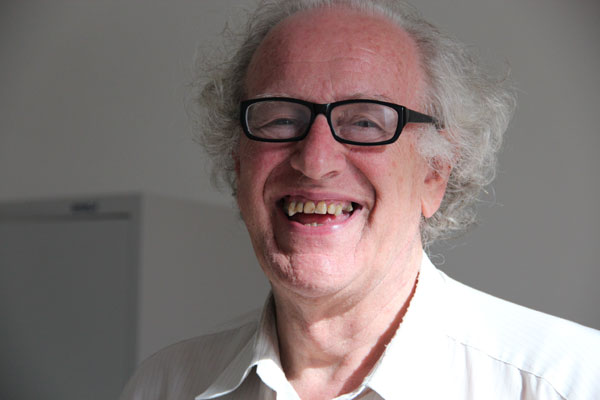Half a century of China watching
 |
| Colin Mackerras has a lifetime of experiences in China. Mei Jia / China Daily |
As for Western perspectives, Mackerras says he has both experienced and observed the different attitudes towards China, ranging from "critical to sympathetic, or even seeing it as a model in different times".
In his latest book, Western Images of China Since 1949, published by Renmin University Press in Chinese (to be followed by an English edition), he chronicles the changing attitudes, the background and how they are formed.
For the first time, Mackerras also adds his personal experiences in the country, to augment the credibility.
In contrast to the Western perception that women had a low social status in China in the 1960s, he writes about how his wife Alice was considered a foreign expert and earned as much as he did.
"After giving birth to Stephen, Alice got the standard maternity leave of 56 days as the other Chinese women did. At work, both of us were treated equally," he says, adding the other female colleagues were very professional and actively interested in politics.
In later years, when Mackerras returned to teach or to do research, he noted that more female students were being admitted into the college where he taught. These days, he finds that the majority of students in the foreign language and culture studies disciplines are female.
His latest book has been hailed by Canadian scholar Daniel A. Bell as a "thoughtful book by a seasoned and balanced Western scholar of China". In it are 60 rare photographs that document the author's various sojourns and experiences in China.
To the books' translators, Zhang Yongxian and Wu Di, scholars at Renmin University's Center of Australian Studies, Mackerras' book comes out with an important observation that "the images of China stems not only from China itself, but from Western concerns on politics and national interest".
"When the West looks at China, it is not entirely about the reality here. Often, it's more about the West itself, and partly about politics," Mackerras says.
He cited two examples of sudden shifts in how the West sees China. In the early 1970s, the American perspective of China changed dramatically because of former Secretary of State Henry Kissinger's visit. "China didn't change that much before and after his visit. It was the perspective in the United States that changed. It was political," he says.
Another example is still prevalent. Often, during elections in the US, China gets demonized because that is how politicians can get more votes. But, there are some who are anxious to see China grow, Mackerras says.
"Looking at the big picture, the West has an attitude of superiority. Certain factors in Western culture contribute to that," he says, "but it will change eventually."
"In contrast to many of his peers, Mackerras has long challenged the dominant Western discourses about China. His latest work updates and systematizes that approach and in a most approachable manner," comments Barry Sautman with the Hong Kong University of Science and Technology.
Sautman believes Mackerras offers "a multi-disciplinary, theoretically-grounded analysis", and that he has a "comparative advantage in a wide-ranging knowledge of China's history, its ethnic minorities and its culture".
Cathryn Hlavka, Minister Counselor at the Australian Embassy in China, commented at the book's Beijing launch that she believes it will help the global audience deepen their knowledge in China.
When Mackerras first arrived in China, he was just as skeptical and critical as the average Westerner of the time.
After finishing his Chinese studies in Australia, Mackerras went to Cambridge University in the early 1960s before he came here. He and wife stayed until 1966, before the "cultural revolution (1966-76)" happened.
Even then, he remembers returning to Australia defending China by saying, "don't rush into judgment".
"When I first came it was challenging. Things gradually changed. I got to love China," adding that many friends he made in those early days are still close.
He returned to China again in the 1980s, and since then he has divided his time between his Chinese home and Australia.
"Chinese culture has a lot to offer to the world in its lifestyle, food, architecture, family values and the arts," he says.






















